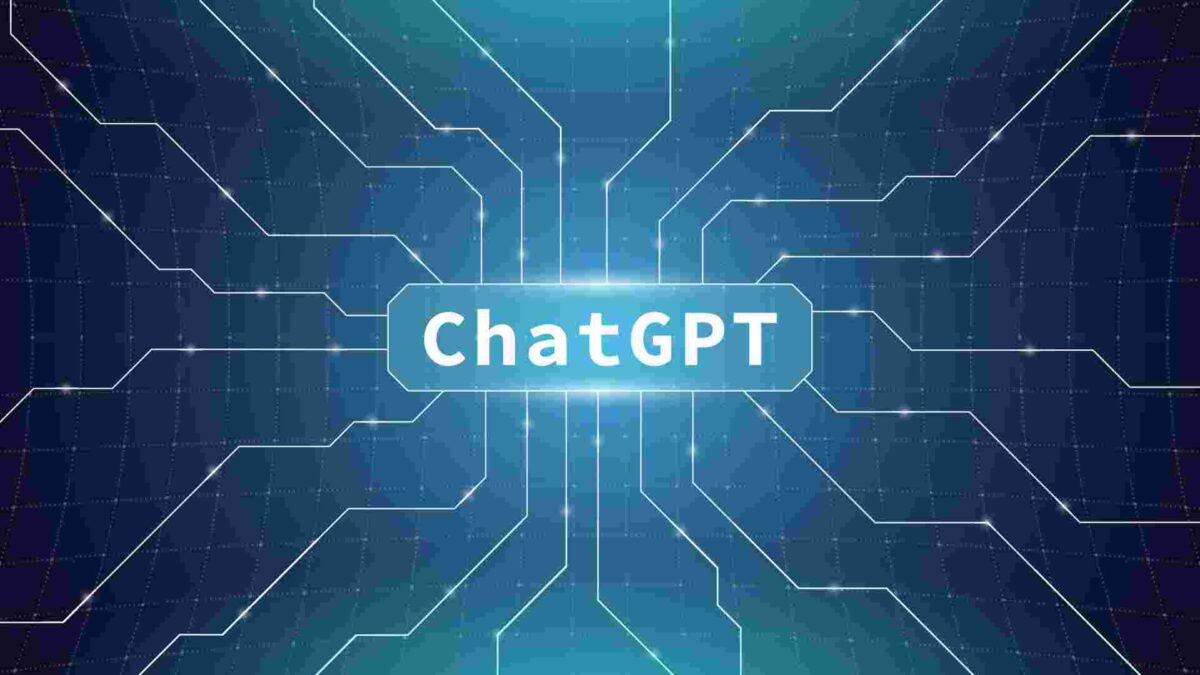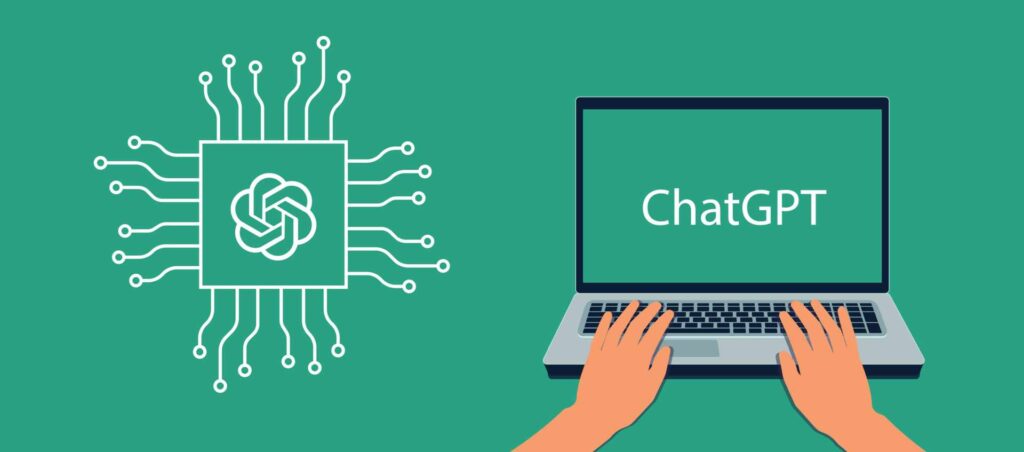
Why ChatGPT In Education Have Educators Worried?
In recent years, ChatGPT, an AI language model developed by OpenAI, has gained significant attention from different fields, including ChatGPT in education. It is becoming increasingly apparent that artificial intelligence is gradually changing the way we learn and communicate, and ChatGPT is at the forefront of this transformation. However, while there are potential benefits of AI in education, it also raises concerns among educators. In this blog, we will explore what ChatGPT is and how it works. We will also examine the various concerns that educators have about the use of ChatGPT in education, including the authenticity of the information it generates, the potential for students to become overly dependent on technology, ethical considerations, and privacy and security risks. By examining these concerns, we can gain a better understanding of the opportunities and challenges that ChatGPT presents in education.
What is ChatGPT?
ChatGPT is a product of OpenAI, which is an AI research laboratory that was founded in 2015 by a group of prominent scientists and entrepreneurs, including Elon Musk, Sam Altman, and Greg Brockman. OpenAI’s mission is to create advanced artificial intelligence technologies that can be used to benefit humanity. ChatGPT uses natural language processing (NLP) and machine learning algorithms to learn from a vast corpus of text and generate text that closely resembles that of a human.
ChatGPT is a highly advanced and sophisticated AI language model that can process natural language and generate human-like text responses to user prompts. It is based on the GPT-3.5 architecture, which is a highly optimized version of the GPT-3 language model. English, German, Spanish, and French are just a few of the languages that ChatGPT can comprehend and analyze.
It can generate text that closely resembles that of a human, which makes it an ideal tool for conversational interfaces, customer service, and education. ChatGPT focuses on particular passages of the input text that are crucial for producing the output using a method called attention. This technique allows the model to generate highly accurate and relevant responses to user prompts.
The capability of ChatGPT to learn from large text data sets is one of its important characteristics. These datasets are used to train the language model to recognize patterns and relationships in language. Once trained, the language model can generate text that closely resembles that of a human.
ChatGPT has numerous applications in education, including language translation, content creation, and information retrieval. It can be used to help students learn new concepts, generate ideas for assignments, and answer questions.
Overall, ChatGPT is an exciting development in the field of AI and has the potential to transform the way we learn and communicate. It is crucial to understand that its usage in education is not without drawbacks and difficulties. As with any other technology, it is essential to use ChatGPT responsibly and ethically to ensure that it benefits society as a whole.
How does ChatGPT work
ChatGPT works by processing text input from users and using its internal language models to generate text that closely resembles that of a human. It does this by leveraging machine learning algorithms that learn from large datasets of text. These datasets are used to train the language model to recognize patterns and relationships in language.
Once trained, the language model can generate text that closely resembles that of a human. It does this by predicting the most likely next word in a sequence of text based on the context of the preceding words. The model utilizes a method called “attention” to concentrate on particular passages of the input text that are crucial for producing the output.
Why does ChatGPT in education have educators worried?

While ChatGPT has the potential to transform education, it also raises concerns among educators. Here are some reasons why:
1. Authenticity of Information: One of the major concerns with using ChatGPT in education is the authenticity of the information it generates. Based on the context of the words that came before it, ChatGPT predicts the most likely next word to appear in the text. This means that it can generate inaccurate or misleading information if it is not properly trained. Educators worry that students may use ChatGPT to generate assignments or essays without fully understanding the concepts they are writing about. This can lead to a lack of critical thinking and a reliance on technology to do the work for them.
2. Dependence on Technology: Another concern with using ChatGPT in education is the potential for students to become too reliant on technology. If students rely too heavily on ChatGPT to generate responses and complete assignments, they may not develop critical thinking skills and problem-solving abilities. In addition, students may not be able to function effectively without access to technology, which can limit their ability to learn and engage with the world around them. Educators worry that this may result in a generation of students who lack the ability to think independently and creatively.
3. Ethical Concerns: There are ethical concerns around the use of ChatGPT in education. ChatGPT generates text by analyzing large datasets of text, which may contain biases or stereotypes. This can lead to the perpetuation of these biases and stereotypes in the text generated by ChatGPT. Educators worry that this may reinforce harmful stereotypes and limit the diversity of thought and ideas in the classroom. There are also concerns about data privacy and the potential for ChatGPT to collect and use student data without their consent.
4. Lack of Personalization: One of the challenges with using ChatGPT in education is that it lacks the ability to personalize learning. While it can generate responses to user prompts, it does not have the ability to assess the individual needs and learning styles of each student. This means that the text generated by ChatGPT may not be tailored to the specific needs of each student, which can limit its effectiveness as a teaching tool. Educators worry that this may result in a one-size-fits-all approach to learning that may not be effective for all students.
5. Impact on Communication Skills: Another concern with using ChatGPT in education is the potential impact on communication skills. ChatGPT generates text that closely resembles that of a human, but it is still a machine-generated response. If students become too reliant on ChatGPT to generate responses, they may not develop strong communication skills, such as active listening, empathy, and effective questioning. This can limit their ability to communicate effectively with others, both in and out of the classroom.
6. Impact on the Teacher Role: There is concern among educators that the use of ChatGPT in education may impact the role of teachers. If students become too reliant on technology to generate responses and complete assignments, it may diminish the role of teachers as educators and mentors. Educators worry that this may lead to a shift away from personalized learning and a focus on technology-driven solutions. This can limit the ability of teachers to develop strong relationships with their students and provide the guidance and support that they need to succeed.
7. Ethical Concerns: There are also ethical concerns associated with the use of ChatGPT in education. The possibility of bias in the text that the language model produces is one of the key worries.ChatGPT is trained on large datasets of text, and if these datasets contain biased or discriminatory language, the model may reproduce and amplify these biases in its responses. This could have serious consequences in the classroom, as it could perpetuate harmful stereotypes and beliefs. It is, therefore, important for educators to carefully consider the ethical implications of using ChatGPT in education and to ensure that the model is trained on unbiased datasets.
8. Privacy and Security: Another concern associated with the use of ChatGPT in education is the privacy and security of student data. ChatGPT relies on large datasets of text to generate responses, and some of these datasets may contain sensitive or personal information. If student data is not properly protected, it could be accessed by unauthorized third parties, potentially leading to identity theft or other forms of harm. Additionally, the use of ChatGPT in education may raise concerns about the use of student data for commercial or other purposes.
In conclusion, ChatGPT is a powerful technology that has the potential to transform education by enhancing student learning and engagement. However, it also raises several concerns among educators, including the authenticity of the information it generates, the potential for students to become overly dependent on technology, ethical considerations, and privacy and security risks. To address these concerns, educators must take a thoughtful and responsible approach to using ChatGPT in the classroom.
This means carefully considering the potential benefits and drawbacks of using the technology and implementing appropriate policies and safeguards to ensure that students are safe and secure while using it. While there are challenges associated with the use of ChatGPT in education, it is clear that the technology has enormous potential to transform teaching and learning.
As educators continue to explore new ways of integrating technology into the classroom, it is important to remain vigilant and proactive in addressing the risks and maximizing the benefits of these powerful tools. By doing so, we can help ensure that students are prepared for the challenges and opportunities of the 21st century and beyond.

ChatGPT Online
“Wow, this article perfectly captures the immense potential of ChatGPT in revolutionizing education! Its ability to provide personalized assistance and instant feedback to students is truly groundbreaking. I can already envision how this technology can greatly enhance learning experiences and facilitate knowledge retention. The future of education looks incredibly exciting with ChatGPT leading the way! Great job on shedding light on this fascinating topic. Keep up the great work!
– GPTOnline”